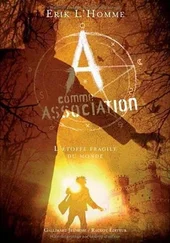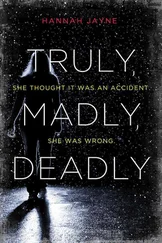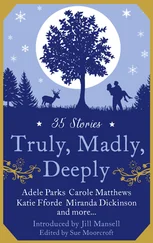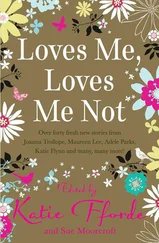‘We’d be shot at dawn,’ she said soberly.
‘Not before they’d pulled our fingernails out.’
‘Don’t joke, it’s not funny. We’ll have to find somewhere else.’
Night after night more bombs fell on more British cities. Sixty miles away London was being pounded ceaselessly. The war was spreading as the weather became colder and winter drew in.
As if in defiance of the misery being wrought upon them, the atmosphere in the camp became quite joyful. It was impossible to walk far without hearing a song being sung, a mouth organ being played, someone whistling. The dances got quite wild, but they finished with couples clinging to each other as if they never wanted to part. Groups of people would suddenly burst into song but likely end in tears as the lyrics touched hearts in a way the composer had never imagined. ‘Kiss the Boys Goodbye’, ‘We’ll Meet Again’, ‘Somewhere Over the Rainbow’: it was the language of love and loss, of words easier to say in song than spoken.
Robert was transferred from the hospital to a single room befitting his rank of Flight Sergeant. He needed a stick to get about so, for now, there was no mention of him being sent elsewhere. He was given a part-time job in the stores filling out order forms. Otherwise nobody bothered him.
When advised he could go home on leave, he replied he’d sooner stay on the premises.
‘Strange chap,’ commented the clerk who’d made the offer, eyeing him suspiciously.
Robert shrugged and said nothing. He just wanted to be with Moira. Nothing else mattered.
Three times a week, when Moira wasn’t working nights, they stayed in an old pub in Mersea, a watery village five miles from the camp. It was reached by a rambling bus usually full of RAF and Army personnel. Their attic room had a sloping ceiling, and was clean, comfortable and cheap. They were committed to sign in at the camp before eight o’clock next morning.
‘I don’t want us making love in a doorway,’ Moira said wrinkling her nose.
‘Or behind the canteen,’ said Robert. Some nights there’d be a whole row of couples.
Moira giggled. ‘Or in a lavatory!’
‘Oh, God, no.’
Other nights they sat in pubs or walked arm in arm on the flat sands where the moon was reflected over and over in the little pools that shimmered like diamonds, pausing to kiss and say, ‘I love you,’ for perhaps the hundredth or the thousandth time.
Sometimes, a German plane would fly over on its way back from London, occasionally dropping the odd bomb there hadn’t been time to release on its intended target.
They knew one day it would have to end. Robert’s health was improving, the headaches fading; he no longer needed a stick. They thought it unlikely both would still be there by Christmas.
‘What shall we do then?’ Moira asked.
‘Write to each other. See each other as often as we can – if we can.’ He could be sent abroad. So could she.
December came. Time was short. Each day began as if it was their last together. The weather worsened and it became icily cold. They spent as many nights as they could manage in the pub, making love full of wonder as well as sadness.
They were there one Saturday when the bar was crowded with military men and women, and locals. Songs, old and new, were sung, as well as Christmas carols.
Upstairs in their attic Robert and Moira made love. It was a surreal experience. The songs filtering up through the floorboards and sounding as if they were being sung in the room with them. As the night wore on, the music slowly faded until all that could be heard were faint voices, still singing, on their way to the bus stop.
They were lying in each other’s arms when they heard the plane approach. Moira got out of bed to watch it passing over.
‘Stay here,’ Robert implored. Had he sensed the danger he was to wonder afterwards?
She was at the window when the bomb plunged through the roof, taking away half the room, leaving him safely in bed on a shelf of severed floorboards. Robert watched, horrified, as she disappeared from sight amid tons of debris and a thunderous whooshing sound.
For a long time, it was like the end of everything.
Many years went by until the time came when he met a woman who loved him. They were married and she bore him a child. A day never passed when he didn’t think of Moira. Nor did a day come when he was as happy as he’d been with her: his one and only love.
And now, seventy years later, he knew they were about to meet again. He could see her more clearly than he’d ever done. She drifted in and out of his mind, she was foremost in his thoughts; singing, always singing. And now here she was, coming towards him, smiling, holding out her arms ready to embrace him.
‘I love you,’ he cried, opening his own arms to greet her. ‘Did I ever tell you how much I love you?’
The wife knew that he had gone. She wept, not just at his passing, but at the words he’d never said, not once, throughout their long married life. Still, it was wonderful to know that all that time he had really loved her.
Love on Wheels
MIRANDA DICKINSONis the author of five Sunday Times Bestselling novels, two of which have been international bestsellers in four countries. She is published in six languages and to this date has sold over half a million books worldwide. She is also the founder of the New Rose Short Story prize. She has been nominated for two RNA awards –the RNA Romantic Novel of the Year award 2010 for Fairytale of New York and the RONA for contemporary novel of the year in 2012 for It Started With a Kiss . Her fifth novel, Take A Look At Me Now , is available now, published by Avon (HarperCollins).
Miranda publishes regular vlogs at her website: www.miranda-dickinson.comand blog: coffeeandroses.blogspot.com. You can follow Miranda on twitter @wurdsmythand on Facebook: www.facebook.com/MirandaDickinsonAuthor.
 Love On Wheels
Love On Wheels
I love my job.
It’s not glamorous or particularly well paid, nor is it anywhere near what my careers advisor had in mind for me when I left school, but it offers magic that few people looking in would see. The van I drive and company sweatshirt I wear may be emblazoned with sunnyside meals on wheels, but my job is so much more than that. I might deliver affordable, nutritionally balanced ready meals to elderly customers, but what I receive in return is priceless. For I am a collector of stories, a sharer of nostalgia, a confidant of dreams.
Not that my boss –who, awkwardly, also happens to be my mum –understands this. She would much rather I limit my conversation with customers to ‘Hello’ and ‘Goodbye’, or maybe ‘See you next week’, if it’s a quiet day on my round.
‘We don’t pay you to be their friend , Emily, we pay you to deliver their food,’ she lectured one morning, clearly imagining herself to be the female incarnation of Lord Alan Sugar. ‘If they want company I’m sure their families can oblige.’
‘Mum, have you ever met the customers on my round?’ I protested, knowing full well that she hadn’t and that my argument was futile. ‘I’m the only other person some of them see all day.’
Mum cast a disapproving eye over my dyed hair –this week a fetching shade of blue. ‘What a treat for them! The point is we are not a charity or a befriending service. First and foremost, we are a business. Now, I need you to read this time and motion study Trevor’s written. And act upon it.’
As she passed me the sheet of paper, I inwardly groaned. Trevor . Repulsive, fifty-something boyfriend of my mother and the kind of man so boring even paint drying would mock him. Since Mum had met him at a business breakfast six months ago, he had fast become the balding, beige-faced bane of my life. What Trevor Mitchell didn’t know about health and safety, workplace law and mindless business jargon simply wasn’t worth knowing. In fact, he seemed to think it was his God-given right to comment on anything and everything, regardless of how much he actually knew about it. And, judging by his latest intrusion, Trev was on top form.
Читать дальше
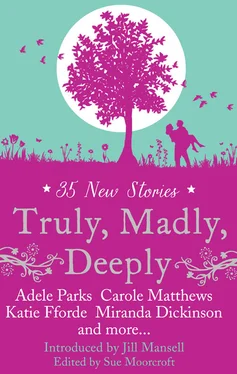
 Love On Wheels
Love On Wheels